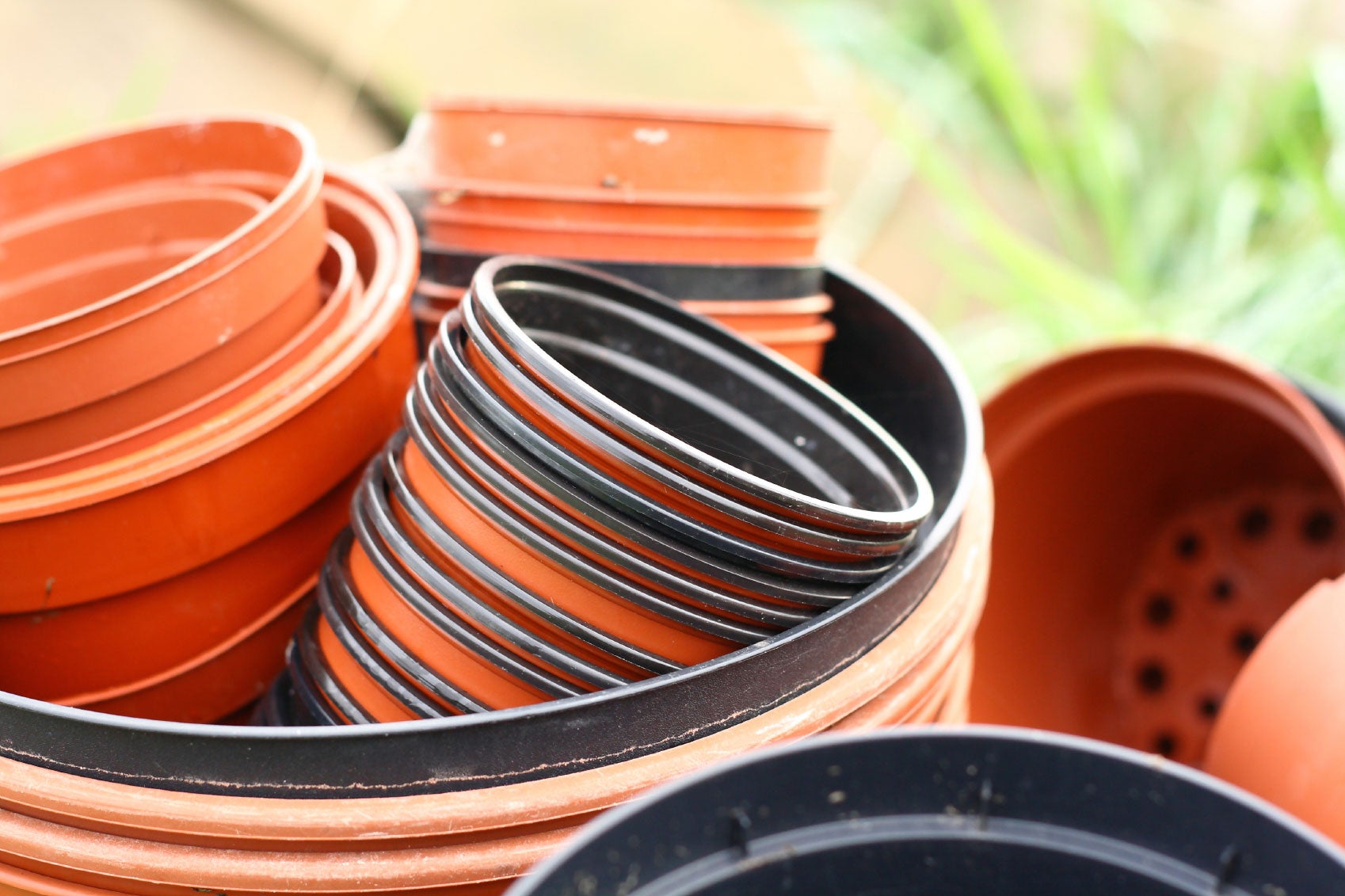
Sign up for the Gardening Know How newsletter today and receive a free copy of our e-book "How to Grow Delicious Tomatoes".
You are now subscribed
Your newsletter sign-up was successful
With an ever-increasing population density, not everyone has access to a home garden plot but may still have a desire to grow their own food. Container gardening is the answer and is often accomplished in lightweight portable plastic containers. However, we are hearing more and more concerning the safety of plastics in regard to our health. So, when growing plants in plastic containers, are they really safe to use?
Can You Grow Plants in Plastic Pots?
The simple answer to this question is, of course. Durability, lightweight, flexibility, and strength are some advantages of growing plants in plastic containers. Plastic pots and containers are excellent choices for moisture loving plants, or for those of us who are less than regular with irrigation. They are made in every color of the rainbow and are usually made of inert material, often recycled. This is not always the case, however. With recent concerns over plastics containing Bisphenol A (BPA), many people are wondering if plants and plastic are a safe combination. There is much disagreement over the use of plastics in growing food. The fact remains that most commercial growers employ plastic in one form or another when growing crops. You have the plastic pipes that irrigate crops and greenhouses, plastics used for covering crops, plastics used in row cropping, plastic mulches, and even plastics that are used when growing organic food crops. While neither proven nor disproven, scientists do agree that BPA is a rather large molecule compared to the ions which a plant absorbs, so it is unlikely it can be passed through the cell walls of the roots into the plant itself.
How to Grow Plants in Plastic Containers
Science says that gardening with plastic is safe, but if you still have some concerns there are a few things you can do to make sure you are using plastic safely. First, use plastics that are free from BPA and other potentially harmful chemicals. All plastic containers sold have recycling codes on them that make it easy to help you locate which plastic is the safest for use around the home and garden. Look for plastic packaging that is labeled with a #1, #2, #4, or #5. For the most part, many of your plastic gardening pots and containers will be #5, but recent advances in plastics means that there may be some plastic containers available in other recycling codes. Paying attention to recycling codes is especially important if you are reusing plastic containers from other products which can be manufactured in a wide range of recycling code. Second, keep your plastic containers from overheating. Potentially harmful chemicals like BPA are most significantly released when plastic becomes heated, so keeping your plastic cool will help reduce the potential for chemical release. Keep your plastic containers out of intense sunlight and, when possible, opt for light colored containers. Third, use potting mediums that have a high amount of organic material. Not only does potting medium with lots of organic material stay soft and keep your plants healthy, it will also act like a filtering system that will help to catch and collect the chemicals so less of them make it to the roots. If, after all this, you still feel concerned about the use of plastic to grow plants, you can always opt to not use plastic in your garden. You can use the more traditional clay and ceramic container, recycle glass, and paper containers from your home or opt to use the relatively new fabric containers that are available. In conclusion, most scientists and professional growers believe that growing in plastic is safe. You should feel comfortable growing in plastic. But, of course, this is a personal choice and you can take steps to further reduce any concerns you might have about plastic pots and containers in your garden. Resources:
- http://sarasota.ifas.ufl.edu/AG/OrganicVegetableGardening_Containier.pdf (pg 41)
- http://www-tc.pbs.org/strangedays/pdf/StrangeDaysSmartPlasticsGuide.pdf
- http://lancaster.unl.edu/hort/articles/2002/typeofpots.shtml
Sign up for the Gardening Know How newsletter today and receive a free copy of our e-book "How to Grow Delicious Tomatoes".

Amy Grant has been gardening for 30 years and writing for 15. A professional chef and caterer, Amy's area of expertise is culinary gardening.
